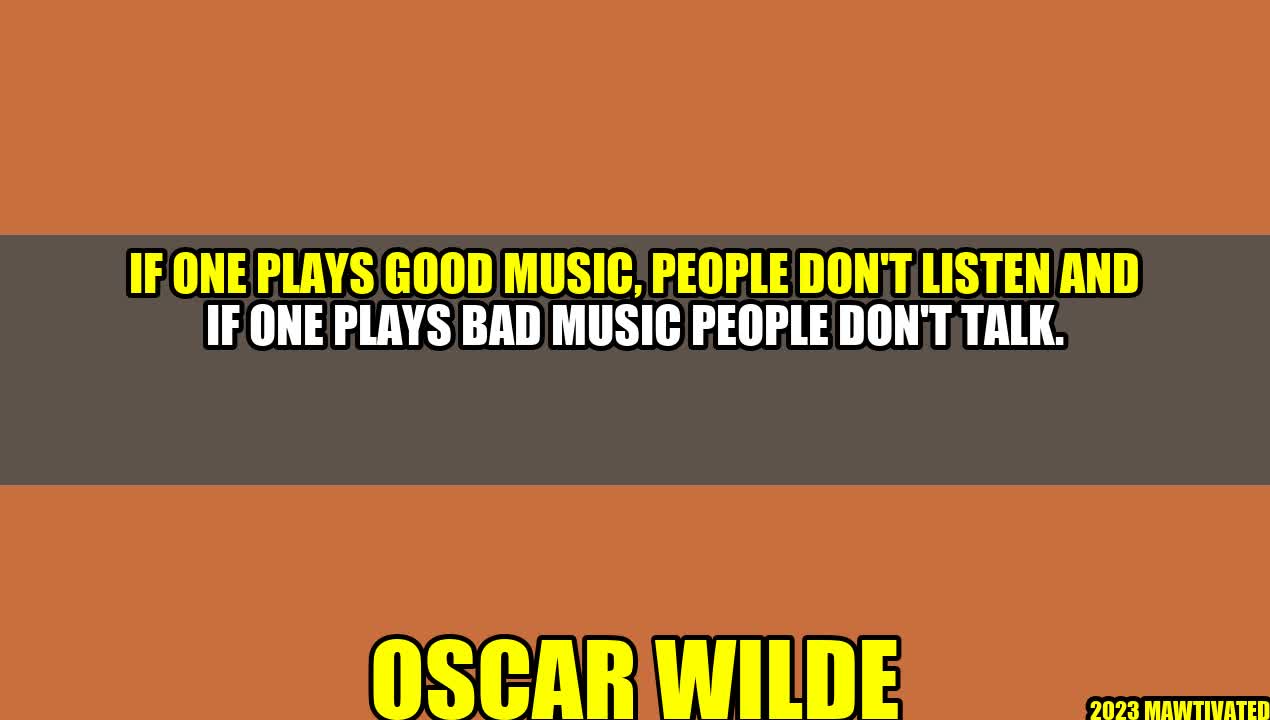If One Plays Good Music, People Don’t Listen And If One Plays Bad Music People Don’t Talk

Let me tell you a story that inspired me greatly. A few years ago, I attended a local music festival where a relatively unknown artist was set to perform. As soon as he started playing, I was struck by the beauty and emotion of his music. As I looked around, however, I noticed that many people were simply chatting and not paying attention. It seemed that no matter how good the music was, some people just weren’t interested.
Later that day, another artist took the stage who played music that was clearly of a lower quality – it was repetitive, simplistic and lacked any real emotion. To my surprise, however, most people in the audience were dancing and cheering. Even though the quality of the music was objectively worse, people were responding positively. This seemed like a paradox to me – why do people sometimes ignore good music and embrace bad music?
“If one plays good music, people don’t listen and if one plays bad music people don’t talk.” – Oscar Wilde
Oscar Wilde, one of the greatest writers and thinkers of the late 19th century, once made a comment about this phenomenon. He said, “If one plays good music, people don’t listen and if one plays bad music people don’t talk.” This quote has been subject to much interpretation over the years, but I believe its underlying message is that good music often goes unappreciated because it doesn’t appeal to the masses.
Why Do People Respond to Bad Music?
One possible explanation for why people respond to bad music is that it is often easier to consume. Simple melodies, repetitive rhythms, and predictable lyrics are all elements that can make a song more accessible to a wider audience. When music is more difficult to understand or appreciate, it may require more effort to appreciate.
Another reason why people might respond to bad music is that it appeals to our emotions in a more direct way. Good music often requires a certain level of emotional maturity and intellectual development to appreciate fully, whereas bad music can provoke an immediate emotional response. This is not to say that bad music lacks any emotional depth, but rather that it may be more simplistic in its appeal.
Examples of Good and Bad Music
- Good Music: Beethoven’s Symphony No. 9
- Bad Music: “Friday” by Rebecca Black
The final symphony of Beethoven is one of the most renowned and beloved pieces of classical music. Its uplifting message of universal brotherhood and unparalleled fusion of voices and instruments makes it a true masterpiece of the genre.
Released in 2011, “Friday” is a classic example of a bad pop song. Its monotone vocals, simplistic lyrics, and herky-jerky melody make it a cringe-worthy experience for most listeners.
Conclusion:
So, what can we learn from all of this?
- Good music may not always be appreciated by everyone, but it is still important to continue making and promoting it.
- Bad music may have a wider appeal, but it is ultimately shallow and short-lived.
- Ultimately, the best music is a combination of skill, emotion, and accessibility. Striving to strike this balance is key to making music that resonates with people in a profound way.

Curated by Team Akash.Mittal.Blog
Share on Twitter
Share on LinkedIn